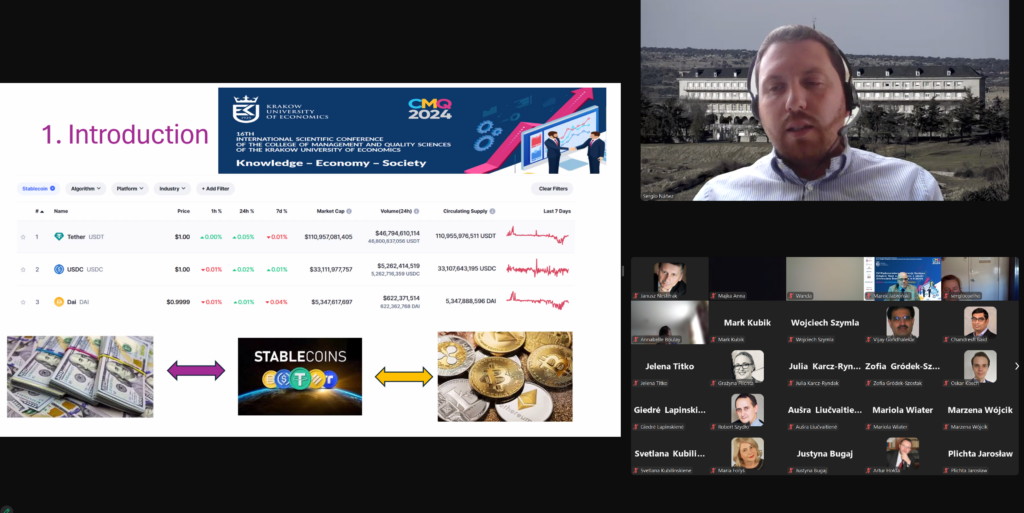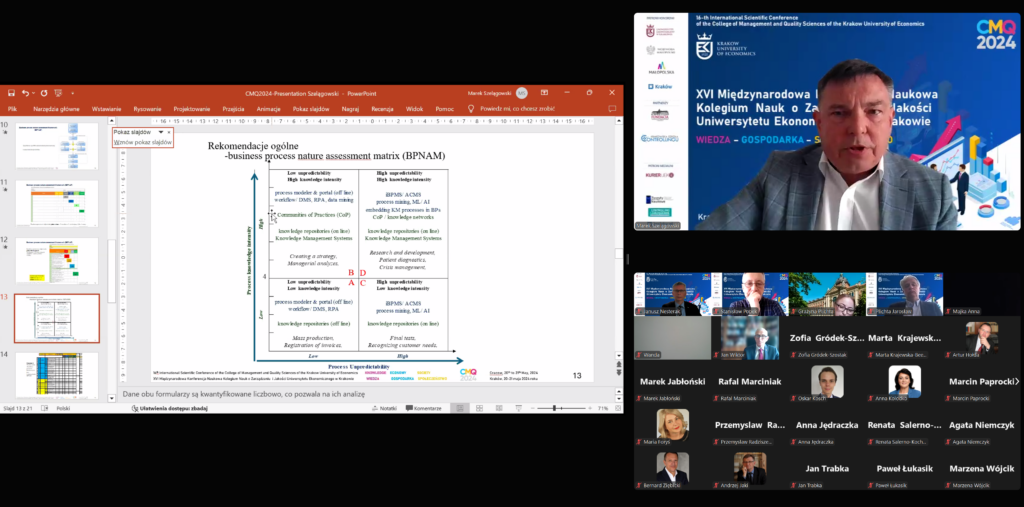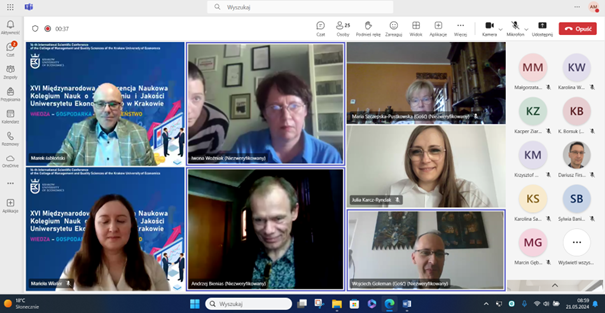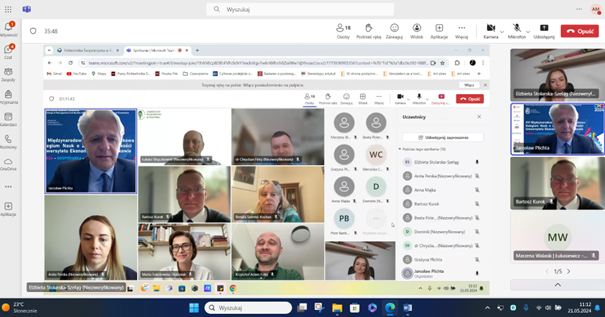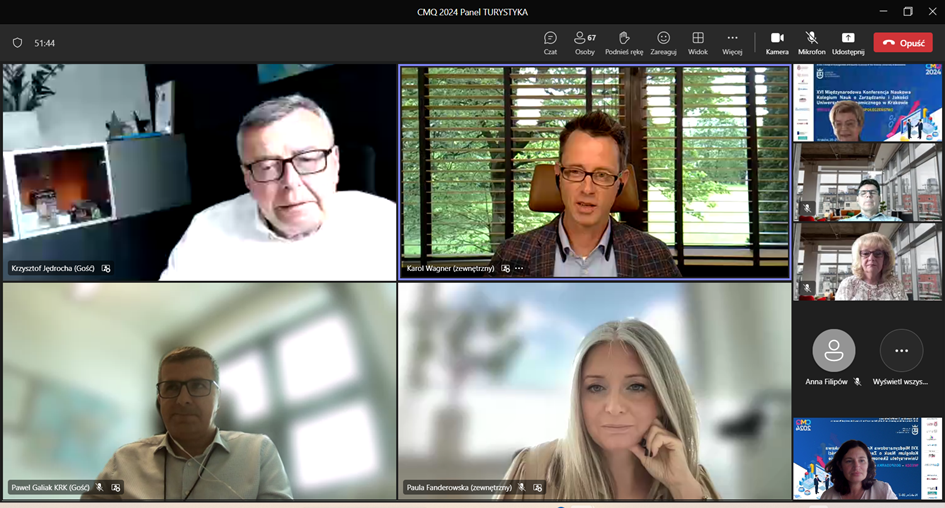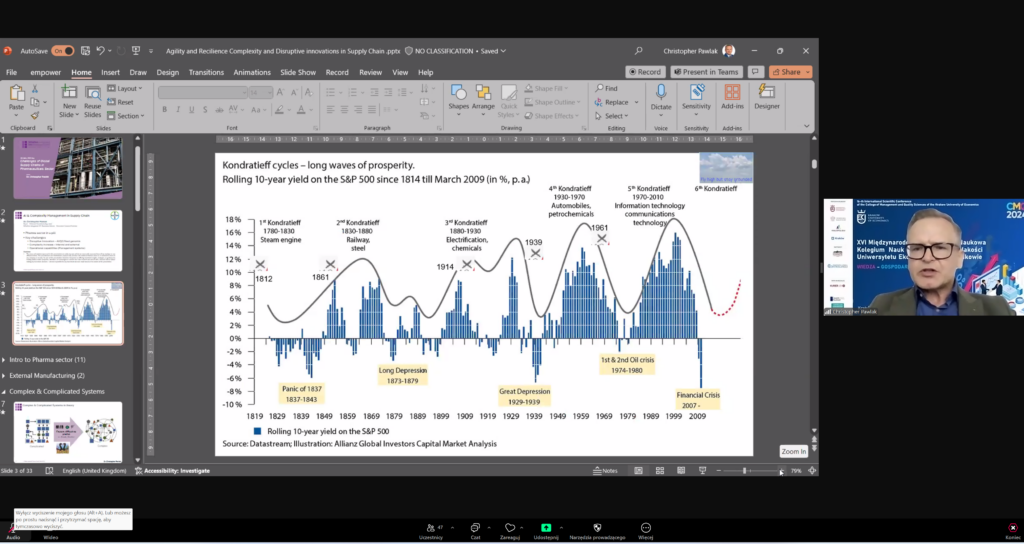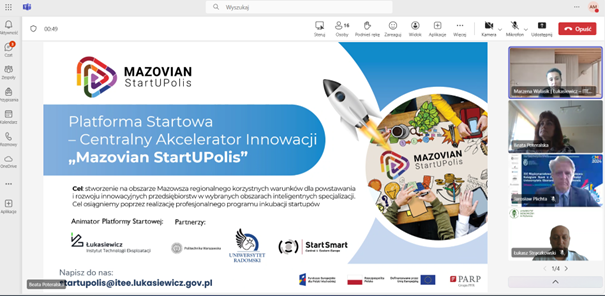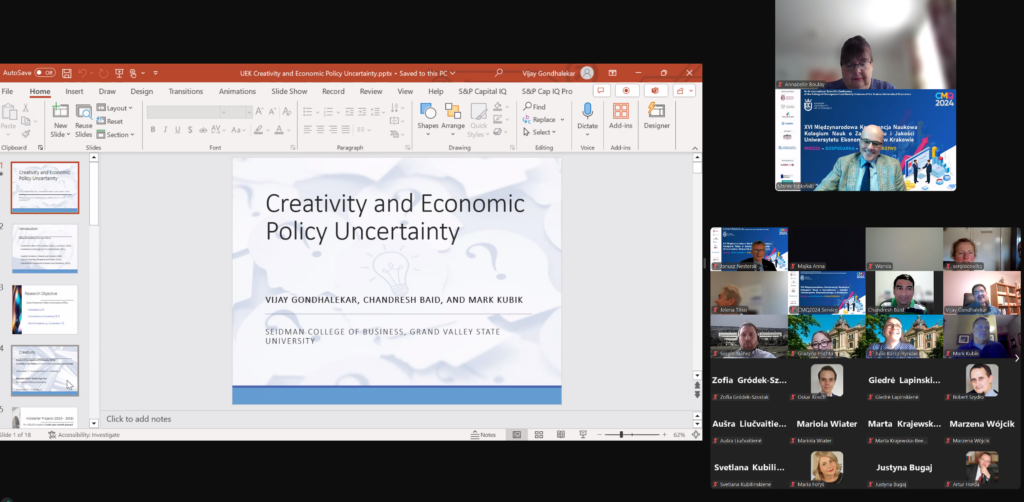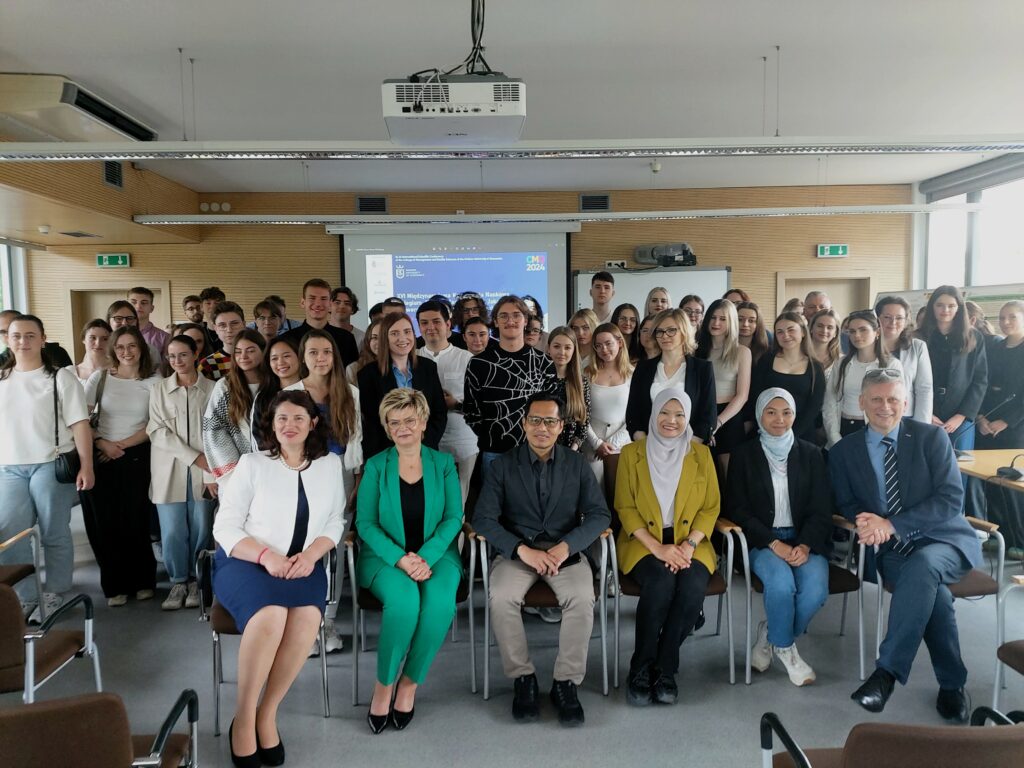16 th International Scientific Conference
Knowledge-Economy-Society
May 20-21, 2024 (Monday – Tuesday)
16 th International Scientific Conference
Young people facing the challenges of sustainable development (Student session)
May 23, 2024 (Thursday)
SUMMARY of the CMQ2024 conference in pdf version
Dear Guests, Participants, and Speakers!
The 16th International Conference of the College of Management and Quality Sciences at the Cracow University of Economics has concluded, leaving us enriched with new perspectives and strengthened ties between the university and the business sector.
On behalf of the university authorities and His Magnificence, Rector Prof. Bernard Ziębicki, as well as in my capacity as the Chair of the CMQ2024 Organizing Committee, I would like to extend our heartfelt thanks and express the hope that you will join us again next year.
During this year’s conference, organized by the College of Management and Quality Sciences, we continued to explore themes from last year’s edition and introduced new, intriguing topics that captivated the participants: sports management and environmental management.
Management, which is at the core of our College, was addressed in a comprehensive manner in this edition, with particular emphasis on human capital, information, and knowledge management. We also discussed risk, quality, and product management, enabling participants to delve into both theoretical and practical aspects of management in various organizational contexts. The conference featured panels focused on management in specialized sectors, both in public and private enterprises. Engaging discussions highlighted specific management challenges in these areas, providing participants with practical tools to overcome them.
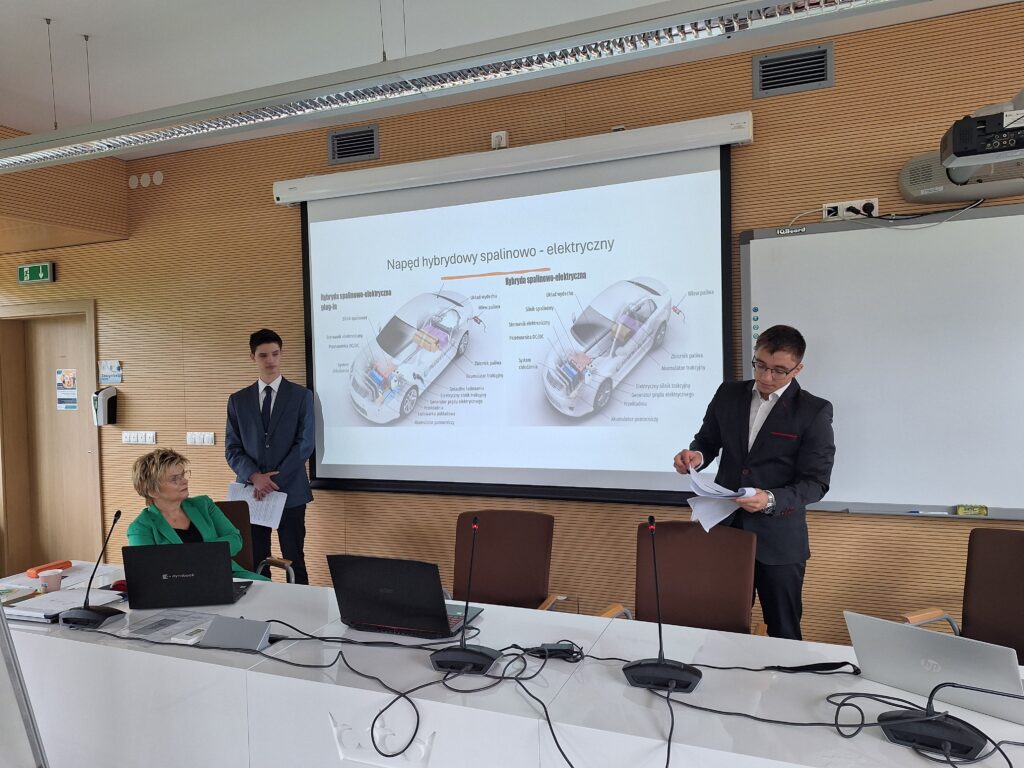
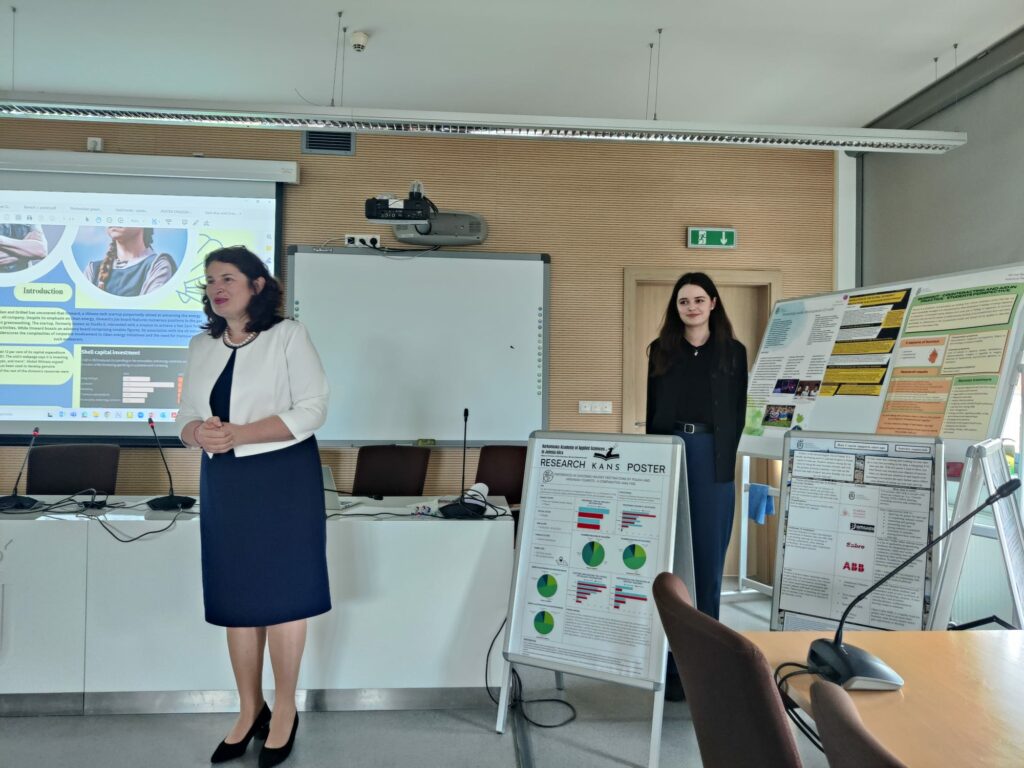
The expert panel focused on theatre management drew a large crowd of participants who keenly followed the debate on modern management methods in this field of art. The theatre, as an institution of the performing arts, faces management and quality challenges and must meet both local and global expectations. The issue of internationalizing the theatre, requiring the integration of diverse cultural traditions, presents a significant challenge.
Creating value in customer relationships was the aim of the next panel, which focused on issues related to client collaboration, including understanding and shaping their needs and creating value, satisfaction, and positive relationships. The speakers discussed how to create value for the contemporary customer, which influences their satisfaction and the main factors of customer loyalty towards brands and products.
ESG, the non-financial indicators that the largest enterprises in Poland will start disclosing this year for the previous year, represents a new economic obligation that will eventually encompass all entities; ESG is also a theme of sustainable development, which, understood as innovation and sustainability, was an important part of our program. Discussions focused on the impact of new technologies on accounting and finance in the context of ESG, considering both the benefits and potential threats of automation and digitalization.
Furthermore, the issue of the labour market in the context of global economic changes was addressed, where experts pondered the impact of migration, changes in minimum wage, and automation on the tourism sector and other industries. There was a discussion on the growing phenomenon of ‘worcation’, a blend of remote work and traveling, which poses new requirements for employers and tourist destinations. Another expert panel gathered to discuss the labour market and entrepreneurship focused on the senior age group, or Silver Economy; during this part, the importance of adapting to changing demographic and market conditions in a shifting social structure was highlighted, along with the opportunities and challenges associated with mature workers and career development in later life.
Continuing the theme of social capital, an integral element of human resource management, the impact of which was showcased by the .kuek Alumni UEK Association, the panelists—experts from an organization operating both virtually and in-person—shared their experiences in building a strong community that grows organically, uniting graduates in a spirit of trust and cooperation and serving as a networking platform for graduates of the Cracow University of Economics.
In the expert panel on controlling, the focus also followed the management of human capital. The assembled experts presented dynamic changes in management, driven by the need to adapt to digital tools and working methods, which were the subject of lively discussion during the panel dedicated to automation, digitization, and digital competencies. This panel also provided an opportunity to exchange experiences from various industries, highlighting the importance of adapting to changes and the challenges associated with new tools in different business models.
It is also worth mentioning the panel on the deposit return system, which gathered representatives of key stakeholders and allowed for an in-depth analysis of the challenges and opportunities associated with this system, a solution that has sparked considerable interest both economically and socially. Panel participants shared their knowledge of current issues and obligations arising from the regulation of the deposit return system and discussed the prospects for its development in Poland.
Adaptation to changing conditions, especially in the context of human resources and neurodiversity, was addressed in another expert panel. We learned that neurodiversity, referring to cognitive differences among employees, including individuals on the autism spectrum, accounts for just 2% of employment in Poland. Developing management practices that consider neurodiversity and sensory accessibility is very important and can deepen the understanding of its impact on management theory.
The context of climate change and energy transformation forms an interconnected cycle that impacts the environment. Public discussions, reflected in a panel meeting led by local government officials, focused on how renewable energy sources and energy efficiency can counteract the adverse effects of climate change. Case studies and best practices from EU countries discussed in the panel led participants to consider both the benefits and challenges of energy transformation, emphasizing the importance of European funds supporting investments in sustainable and innovative technologies and international cooperation in managing climate change. These are topics that vividly touch every one of us, as citizens and residents of Earth, on both a local and global scale.
A new topic introduced for the first time at our conference was the management in sports, which shows that it is a process as complex as managing a large corporation. It involves strategy, selecting the right people, balancing sporting and economic results, and controlling actions taken, with emotions playing a significant role. Key elements in sports management include economic aspects, such as the financial systems that ensure liquidity and risk diversification, as well as psychology, which significantly influences decision-making at various management levels. Panellists— sports people who have achieved professional success—shared their insights on management and pondered whether there is a management model that can guarantee success, emphasizing the importance of both measurable and immeasurable elements in sports management.
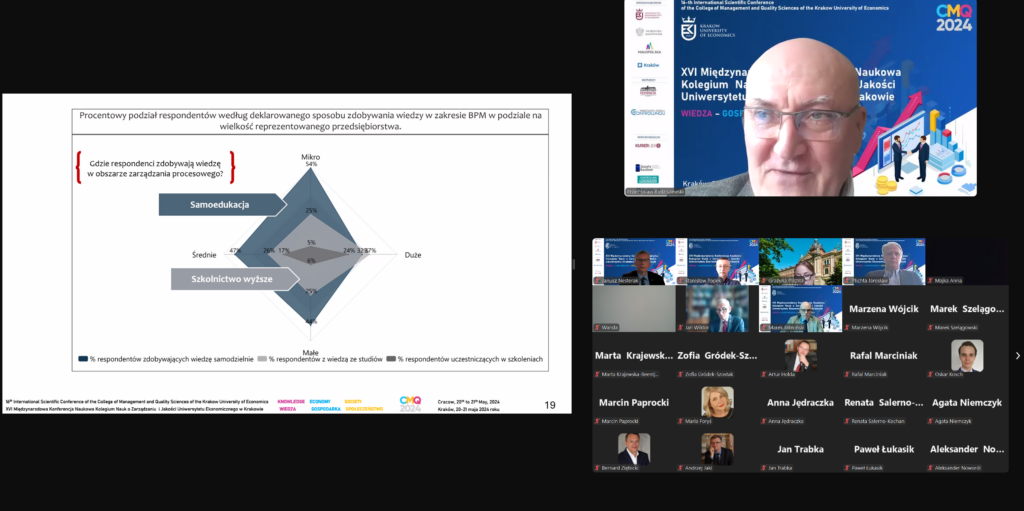
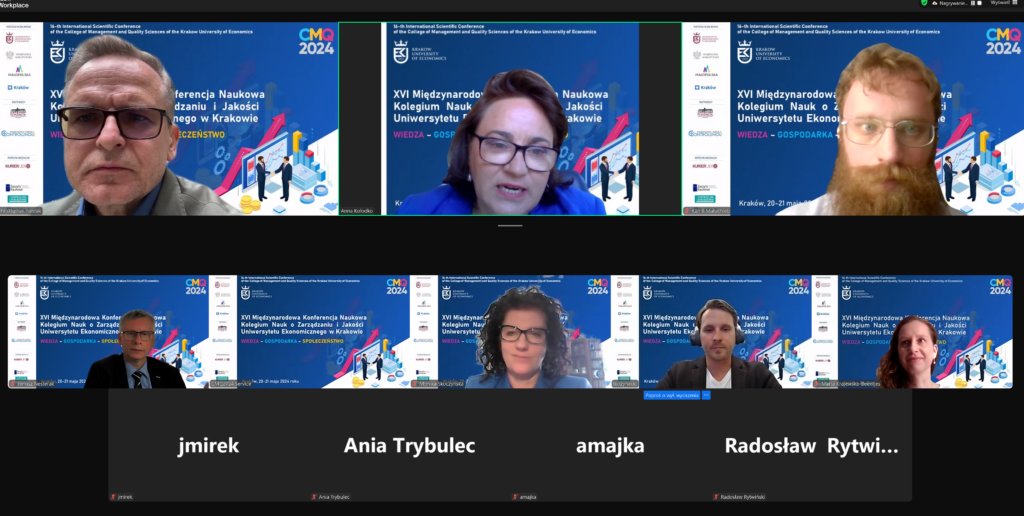
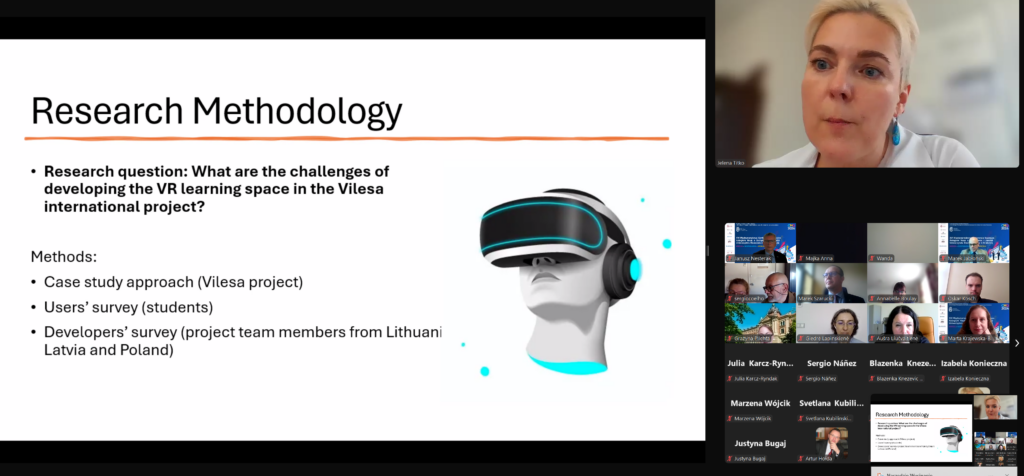
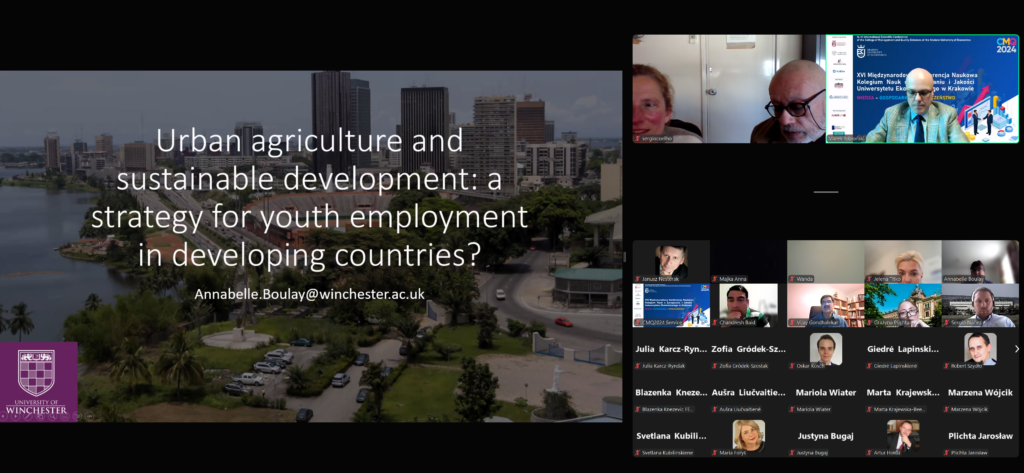
In summarizing this event, I would like to share with you some numbers that are even more impressive compared to previous years, demonstrating the dynamic development of our conference:
– The plenary sessions of CMQ2024 welcomed 122 participants, highlighting the appeal of the conference and the significance of its topics.
– Four scientific sessions in both Polish and English attracted 60 participants, showing strong interest in focused discussions.
– Twelve expert panels recorded impressive attendance—420 participants on the first day and 435 on the second day.
These sessions were crucial for sharing specialized knowledge and advanced practices.
It is also noteworthy that this year’s scientific sessions succeeded in connecting with scientists from Indonesia, Malaysia, Lithuania, Latvia, Portugal, Spain, Switzerland, the United Kingdom, Ukraine, and the USA. The digital format of the conference allowed us to invite international experts and high-level managers, which would have been difficult with a traditionally organized conference. This confirms the significant potential of online conferences, which we intend to further develop to enable access for an even larger number of foreign scientists and business practitioners, further emphasizing the international character of our event.
The integration of business practitioners, representatives of government, local government, culture, sports, and various non-business organizations not only enriched the content of the conference but also its status and inclusiveness. As the team of the College of Management and Quality Sciences at the Cracow University of Economics, we are proud of this because the relationships formed and the ideas generated during these meetings set a clear path for our current and future academic and empirical work.
I am proud that we have achieved our goals, namely presenting and disseminating scientific research results, supporting cooperation between business and academia, and exploring the possibilities of commercializing scientific research, all made possible by our joint commitment, for which I would like to thank you profoundly.
Our sessions created valuable opportunities for dialogue between scientists and business professionals, contributing to a broader understanding of economic and managerial landscapes.
I encourage all participants to continue sharing their academic and business contacts, as well as innovative ideas. I am interested in collaborating to expand our conference offerings, welcoming contributions not only from professors but also from doctoral candidates, practitioners, and administrative representatives. I am deeply grateful to all panel leaders and participants for their invaluable input and look forward to building on the successes of our next conference edition, CMQ2025.
On behalf of my colleagues from the College of Management and Quality Sciences, I again extend my gratitude for your contribution, cooperation, effort, and engagement. I want to emphasize that we have achieved success together—I am honoured to host you here and proud to see us collectively advancing the mission of our University.
I encourage you to share your opinions; I will be grateful for any feedback from you, as striving for excellence in managing the CMQ project has become my personal goal.
With respect,
Janusz Nesterak, PhD, DSc, Associate Professor
Head of the Organizing Committee CMQ2024
Krakow, May 28, 2024
